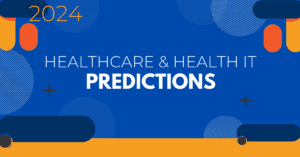The following is a guest article by Shveta Mangal, CEO at VitaWerks
In today’s rapidly evolving healthcare environment, the concept of home as an “extension of care” is gaining traction, ushering in a new era of patient-centered support. Traditionally, healthcare was confined to clinical settings, but with advancements in technology, particularly artificial intelligence (AI) and machine learning, the paradigm is shifting.
These cutting-edge technologies are now being harnessed to predict health issues before they escalate, revolutionizing home health care and paving the way for proactive interventions that can prevent hospitalizations.
AI has emerged as a game-changer in the realm of home health care. AI-powered algorithms analyze vast amounts of health data collected from various home devices, transforming it into actionable insights. This ability to process and interpret data quickly and accurately is crucial for early detection of warning signs and timely interventions. By leveraging AI, healthcare providers can identify subtle changes in health parameters that may signal the onset of illness or exacerbation of existing conditions. For example, AI algorithms can analyze data from wearable devices, smart scales, and other home health monitoring tools to detect fluctuations in vital signs, sleep patterns, or activity levels that may warrant further investigation.
Early detection is key to preventing hospitalizations and improving patient outcomes. By identifying potential health issues before they escalate, healthcare providers can intervene proactively, adjusting treatment plans or initiating preventive measures to avert hospitalizations. This proactive approach not only improves patient outcomes but also reduces healthcare costs associated with emergency room visits and hospital admissions. Studies have shown that AI-powered predictive analytics can lead to significant reductions in hospital readmissions and healthcare utilization, resulting in cost savings for healthcare systems and improved patient satisfaction.
In addition to early detection, AI-powered home health monitoring devices empower individuals to take an active role in managing their health. By providing real-time feedback and personalized insights, these devices enable individuals to track their progress, monitor their adherence to treatment plans, and identify potential red flags. For individuals with chronic conditions or complex medical needs, this proactive approach can be life-saving, allowing them to detect and address health issues before they escalate. However, it’s important to recognize that AI is not a panacea for all healthcare challenges. While AI holds tremendous promise in home health care, it’s essential to balance technological advancements with the human touch. Human caregivers play a crucial role in providing empathy, compassion, and personalized care that cannot be replicated by machines. By combining the strengths of AI with the human touch, healthcare providers can create a holistic and patient-centered approach to home health care that maximizes outcomes and enhances quality of life.
Expanding further on the role of AI in home health care, let’s delve into some key data and evidence supporting its effectiveness and explore recommendations for healthcare providers looking to integrate AI into their practice.
Data and Evidence Supporting AI in Home Health Care
Various studies have demonstrated the efficacy of AI-powered algorithms in detecting early warning signs and preventing hospitalizations in home healthcare settings. For example, a study published by the National Institutes of Health showed that AI algorithms analyzing data from wearable sensors could accurately predict falls in older adults, enabling timely interventions to prevent injuries and hospitalizations. Another study conducted by researchers at Stanford University found that AI-powered predictive analytics could forecast hospital readmissions with high accuracy, allowing healthcare providers to intervene proactively and reduce rehospitalization rates.
Moreover, real-world evidence from healthcare organizations implementing AI in home health care has shown promising results. For instance, a study conducted by a leading home health agency found that implementing AI-enabled home health monitoring devices led to a significant reduction in hospital admissions among patients with chronic conditions. By leveraging AI to detect early warning signs and provide personalized interventions, the agency was able to improve patient outcomes and reduce healthcare costs.
Recommendations for Integrating AI into Home Health Care Practice
- Invest in AI-Enabled Home Health Monitoring Devices: Healthcare providers should invest in AI-powered home health monitoring devices that are capable of collecting and analyzing relevant health data. These devices should be user-friendly, accurate, and capable of providing real-time feedback to both patients and providers.
- Implement Robust Data Analytics Platforms: To maximize the benefits of AI in home health care, healthcare organizations should implement robust data analytics platforms capable of processing and interpreting large volumes of health data. These platforms should utilize advanced algorithms and machine learning techniques to identify patterns, trends, and anomalies indicative of potential health issues.
- Provide Training and Education: Healthcare providers should provide training and education to both patients and staff on the use of AI-enabled home health monitoring devices. Patients should be educated on how to use the devices properly and interpret the data collected, while staff should be trained on how to integrate AI into their practice and leverage the insights generated to improve patient care.
- Establish Protocols for Intervention: Healthcare organizations should establish protocols for intervening based on the insights generated by AI-powered home health monitoring devices. These protocols should outline the steps to be taken in response to specific health alerts or warning signs, ensuring timely and appropriate interventions to prevent hospitalizations.
- Monitor and Evaluate Performance: Healthcare providers should continuously monitor and evaluate the performance of AI-powered home health monitoring devices to ensure their effectiveness and reliability. Regular reviews of data analytics reports and patient outcomes can help identify areas for improvement and inform future decision-making.
Indeed, the integration of AI into home health care represents a significant advancement in healthcare delivery, with the potential to transform the way we prevent and manage chronic conditions, reduce hospitalizations, and improve overall patient outcomes. By embracing AI-powered home health monitoring devices and implementing evidence-based practices, healthcare providers can create a future where personalized, proactive, and patient-centered care is the norm.
 About Shveta Mangal
About Shveta Mangal
As the CEO of VitaWerks, Shveta is responsible for overseeing all facets of the organization such as operational excellence, finance, and product development. She also leads the strategic expansion efforts of the organization in new markets. As a seasoned professional with more than 20+ years of operations, technology, and healthcare experience, Shveta held various leadership roles in Silicon Valley startups and Fortune 500 companies. Shveta holds a Bachelor’s in Engineering, from Cummins College.
Get Fresh Healthcare & IT Stories Delivered Daily
Join thousands of your healthcare & HealthIT peers who subscribe to our daily newsletter.



